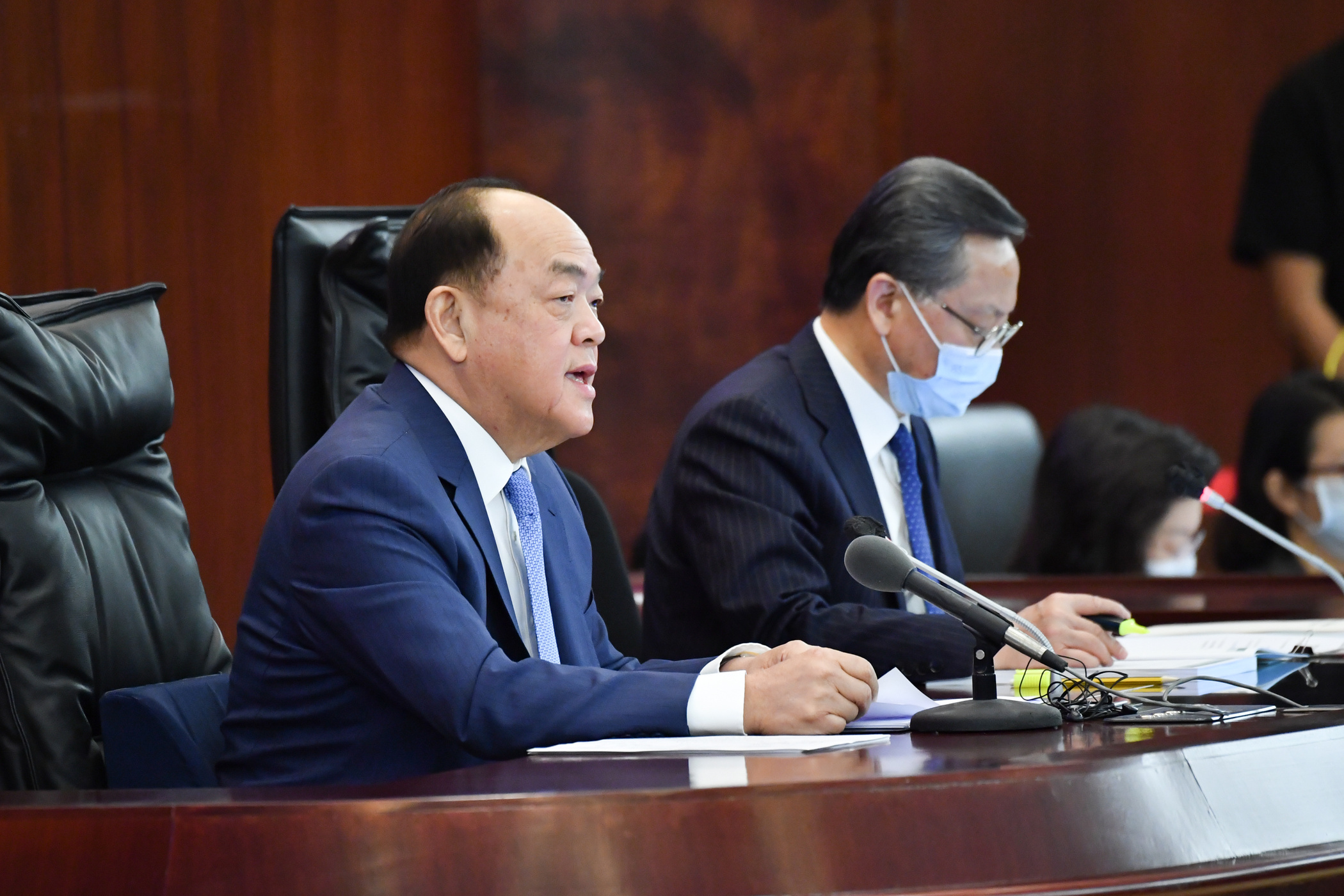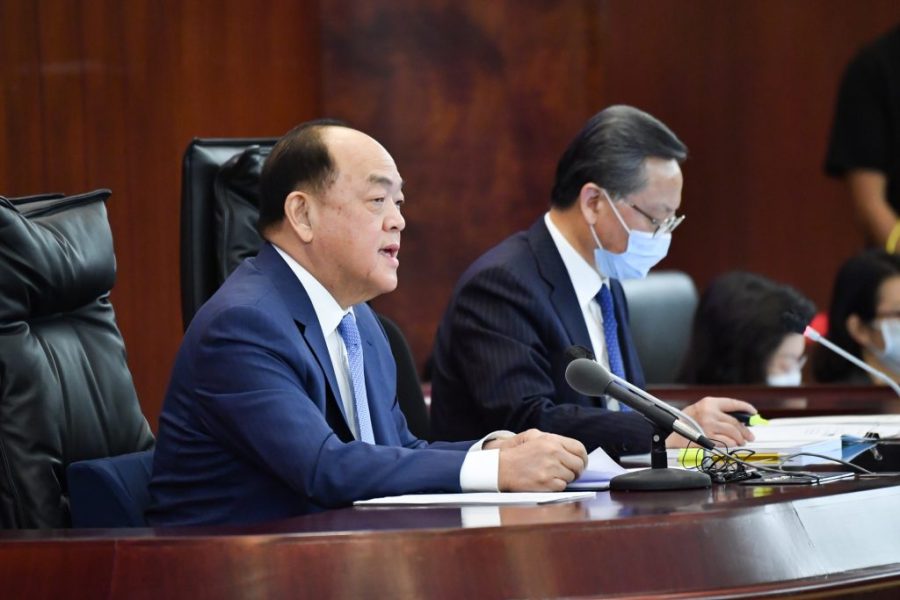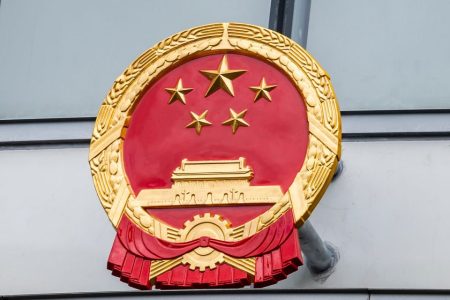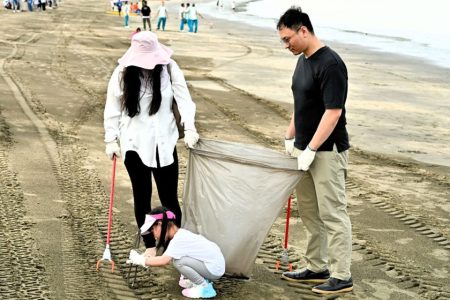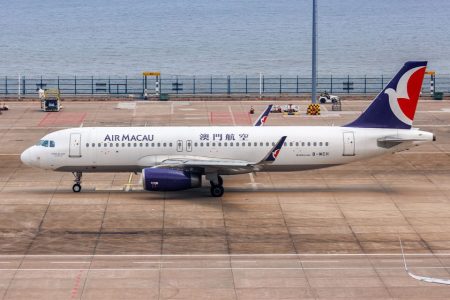Chief Executive Ho Iat Seng said on Monday that the way the government will give residents its annual “wealth-sharing” handout next year would depend on their views and the development of the Covid-19 pandemic, but he reaffirmed that the government would continue sharing the city’s wealth with residents in cash if “everybody” prefers it that way.
Speaking during a post-policy address press conference at Government Headquarters, the chief executive said that if the Covid-19 pandemic becomes less serious and consequently Macao’s employment situation improves next year, it would be “a good thing” for the government to share its wealth in cash, like in previous years.
The press conference, which lasted 100 minutes, took place after Ho delivered his 90-minute 2021 Policy Address to the Legislative Assembly (AL) Monday afternoon.
The full version of the 2021 Policy Address states that next year’s government annual cash handout will remain unchanged at MOP 10,000 for permanent residents and MOP 6,000 for non-permanent residents, but it also states that “the form of distribution will depend on the circumstances”.
Ho told local civic leaders last month that since it was “impossible” for the local government to predict the future development of the Covid-19 pandemic, it would need to study how its “wealth-sharing” handout scheme could stimulate the local economy, consumption in particular, and stabilise the employment of staff in local micro-, small- and medium-sized enterprises (MSMEs). A few days later, Ho told reporters that the government would “constantly” study the possibility of changing its way of sharing the city’s wealth with residents next year, but he was quick to add that “if everybody prefers cash, [the government] will continue [sharing the city’s wealth] in cash [next year]”.
During Monday’s press conference, Ho was asked by reporters about the government’s possible change in its way of sharing the special administrative region’s wealth with residents next year. Ho said that the government was open to listening to various views from civil society on the matter, but he also underlined that the government’s consumption subsidy scheme has helped boost the local economy and stabilise employment.
The first phase of the government’s consumption subsidy scheme, a 3,000-pataca consumption smartcard, ran between May and July, while the ongoing second phase of the scheme, a 5,000-pataca top-up to the card, is running between August and next month.
“If everybody has a consensus that the handout should be distributed in cash, [the government] will continue [sharing the MSAR’s wealth] in cash [next year],” Ho said, reassuring that the handout is part of next year’s government budget.
Ho was quick to add that “but how the handout will be distributed will depend on the changes in the Covid-19 pandemic, and [the government] will still have plenty of time to make a decision [on the matter]”.
Consumption subsidy stabilises employment: Ho
Ho also said that the consumption subsidy scheme has “obviously” stimulated consumer spending since its launch in May, adding that 75 per cent of the subsidy has been spent in the “cha chaan teng” (traditional Hong Kong and Macao-style café) sector in particular.
Ho said that the consumption subsidy scheme has enabled the local MSMEs to stay in business, which has helped stabilise local employment as well.
Ho said that this year’s cash handout, which was paid to residents in April, did not stimulate local consumption, adding that the handout turned out to be merely “a transfer of money from the government to residents’ bank accounts”.
Ho said that in addition to the administrative procedures of the annual cash handout, the government was now also familiar with the procedures of issuing consumption subsidies to residents. “The government is now very familiar with both tasks,” Ho said.
Ho urged residents to think about the way the annual cash handout should be distributed in the long term.
Ho underlined that the government’s way of sharing the city’s wealth next year would depend on the development of the Covid-19 pandemic. “If the Covid-19 pandemic improves – i.e. becomes less serious, causing Macao’s employment situation to return to normal it would be a good thing for the government to share its wealth in cash like previously, which would help many grassroots households in buying [their daily necessities], in which case they could choose to buy things outside Macao,” Ho said.
Ho also pointed out that next year’s cash handout will be paid to residents in July, the same arrangement as in previous years, while only this year’s timing of the cash handout was different as the government brought forward the payout to April in response to the adverse impact of the Covid-19 pandemic on the local economy. Ho also said that therefore the government would surely decide before July next year on the way of distributing next year’s “wealth-sharing” handout.
Possible extra financial support
When asked about whether the government will roll out a third round of financial support measures for residents and businesses alike, Ho said that it would “really” depend on the development of the Covid-19 pandemic.
“If the Covid-19 pandemic stabilises – or Covid-19 vaccines become widely available, Macao would be able to welcome tourists from many areas around the world and its economy would improve, in which case the government would not have to roll out the third round of financial support measures,” Ho said.
“[But] if local MSMEs still have difficulties in running their business next year due to the still serious Covid-19 pandemic, the government would not rule out implementing financial support measures that accurately benefit those in need,” Ho said.
(The Macau Post Daily/Macao News)
Photo by Government Information Bureau (GCS)
